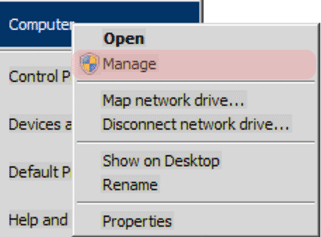
- #Usb vid pid lookup serial
- #Usb vid pid lookup update
- #Usb vid pid lookup code
- #Usb vid pid lookup license
The chances of this are actually pretty good – Greg KH posted the following on G+: If the Linux kernel were to adopt this approach, the USB-IF would have to simply concede to them. If they try to assign it to someone, that party will refuse it as substandard due to others using it like this. If the entire community just picks a VID to use, there isn’t anything they can do. There’s nothing the USB-IF can do to non-members who don’t follow their rules, provided that they don’t the USB logo (which is trademarked). Posted in Misc Hacks Tagged pid, usb, USB IF, USB Implementers Forum, USB PID, USB VID, VID Post navigation Once that’s accepted, that PID is yours forever. You can get a PID by forking the pid.codes repo, claiming a PID, and sending a pull request. The original owners of the VID, InterBiometrics, licensed their VID before transferring or sublicensing VIDs and PIDs was prohibited by the USB-IF. The only thing the USB-IF could do to stop this is revoke the original VID useless, because they can’t reassign it to anyone else. This is not a project supported by the USB Implementers’ Forum, and is more of a legal game of chicken on the part of pid.codes. pid.codes obtained the rights to a single VID – 0x1209 – and now they’re parceling off all the PIDs that remain to open source hardware projects. Now, someone has finally done the sensible thing and put an unused USB VID to work. Very few companies will ever release 65,000 products, and there are a lot of unused PIDs sitting around out there.
#Usb vid pid lookup license
To sell anything with USB and have it work like USB should, you need to buy a USB Vendor ID, a $5000 license that grants you exclusive use of 65,536 USB Product IDs.
#Usb vid pid lookup serial
Павел Мамчий on A dirty and quick example of s…Īnantarajbastola on UsbSerial: A serial port drive… CH340/341 improved support in UsbSerial 4.2.Reverse engineering USB devices 101: Introduction.Reverse engineering USB devices 101: USB Basics.

#Usb vid pid lookup code
I hope you find this piece of code useful. String productName = data.getProductName() // Product name String vendorName = data.getVendorName() // Vendor name UsbData data = dataProvider.lookup(vid, pid) // Returns null if vid or pid are not valid inputs or database could not be created

String pid= "010C" // Must be an hex representation of 16 bit number (0000-FFFF). String vid = "03f0" // Must be an hex representation of 16 bit number (0000-FFFF). dataProvider = new UsbDataProvider(context)

#Usb vid pid lookup update
Code void onDbUpdated(String newVersion)ĭataProvider = new UsbDataProvider(context, mCallback) // Create and open, open or update and open database if necessary. status = true means database was successfully created status = false means database could not be created due to an error fetching data from source Private UsbDataProvider.UsbDbCallback mCallback = new void onDbOpenedFirstTime(boolean status) There are some callbacks related with created, opened and updated database events. * felhr Clone all the files needed: git clone So I released this piece of code to fill my own requirements. – All database operations should be encapsulated. – Local database should be updated when new devices were added to Usb Id Repository. – Data should be stored locally using SQLite to avoid dependency on network.

But It seems very complete and reasonably updated so there is no reason to moan. First I was looking for a beautiful REST API with its fancy methods and its json responses but I only could find The Usb Id repository which is a text file and nothing more. Unfortunately if you are developing an application which needs to show a readable information about devices attached to usb root hubs these keys are pretty cryptic and need to be decoded into human readable information.ĭuring the development of DroidTerm I reach this problem because I am working on a Usb viewer of what is attached to Usb port. These keys are, among a lot of other things, an advantage of Usb over other vintage ports as serial ports. Usb devices are identified by two 16-bit numbers known as VID and PID (Vendor id and Product Id).


 0 kommentar(er)
0 kommentar(er)
